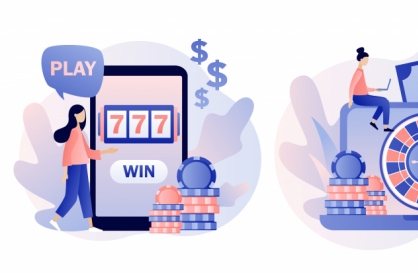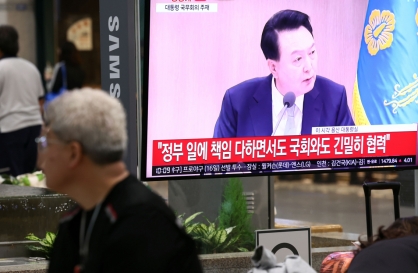[Kim Seong-kon] Business or pleasure? Let us say pleasure
By Korea HeraldPublished : Feb. 24, 2015 - 19:55
South Korea has amazed the world by miraculously achieving both economic success and impeccable democratization in a short span of time. From a poverty-stricken, devastated postwar country, South Korea has risen to become an affluent democracy that enjoys economic prosperity and freedom. Until the 1970s, South Korea was governed by military dictatorship and the people did not know where their next meal would come from. Today, however, restaurants and coffee shops bustle with people who can afford to splurge, while the streets are lined with luxury cars, both domestic and foreign.
 Unfortunately, however, Koreans have lost many precious things in the whirlwind of radical social change brought about by rapid industrialization and democratization. For example, we have lost traditional virtues of altruism and decorum, and have hopelessly plunged into selfishness and materialism. We have also lost Confucian virtues and thus no longer respect our parents and teachers, or seniors and superiors. Indeed, we gained material abundance at the cost of humanity and humility, happiness and pleasure.
Unfortunately, however, Koreans have lost many precious things in the whirlwind of radical social change brought about by rapid industrialization and democratization. For example, we have lost traditional virtues of altruism and decorum, and have hopelessly plunged into selfishness and materialism. We have also lost Confucian virtues and thus no longer respect our parents and teachers, or seniors and superiors. Indeed, we gained material abundance at the cost of humanity and humility, happiness and pleasure.
In 2012, British journalist Daniel Tudor published the book “Korea: The Impossible Country,” in which he made insightful observations. Obviously, the English title has a double meaning, but his Korean publisher, perhaps appropriately, named the Korean translation of the book “The Country That Achieved a Miracle, but Lost Happiness.” Indeed, laboring from dawn to dusk to gain economic prosperity, we have given up so many pleasures. Perhaps that is why Koreans are unhappy even when they are relatively well off.
Koreans are workaholics and do not spend much time with their family. They are at work all day and often at night. Even after work, they are frequently required to entertain business partners or clients at a bar and thus come back home very late and drunk. Naturally, Korean salarymen are so exhausted on the weekend that they want to sleep all day. The problem is that their wives expect them to take the family to a fine restaurant or a resort so they can enjoy the weekend together. Of course, Korean men can turn a deaf ear to their wives’ humble but outrageous demands; as long as they make money and get a raise or promotion, Korean men are immune from all family obligations and their irresponsibility is condoned. In that sense, Korea is a paradise for men.
American husbands do not seem to enjoy such privileges. In the movie, “Kramer vs. Kramer,” for example, Joanna breaks up with her workaholic husband Ted when he triumphantly returns home after having a few drinks with his boss, who has just assigned him to a very important position at work. On such an occasion, a Korean wife would have definitely dropped her idea of leaving him, but Joanna leaves him despite her husband’s promotion. In another movie, “Mrs. Doubtfire,” Daniel is divorced by his wife Miranda, who accuses him of being an irresponsible husband. These movies unnerved me greatly, and it struck me that Korean men were extremely lucky and should be very grateful for being born in Korea; no Korean man could meet such strict standards and save his marriage.
The Korean people should also try to restore the precious things they lost during the industrialization process such as humanity, integrity and generosity. American movies often deal with this theme. “Rain Man,” for example, is an account of a man who realizes what he has lost in the blind pursuit of profit. Initially, the protagonist Charlie betrays his father’s expectations and runs away from home to pursue money and become an automobile dealer. At first, Charlie does not understand the meaning of the two legacies he inherits ― his father’s Buick and rose bushes, that is, symbols of machinery and the pastoral dream. Gradually, however, Charlie realizes what his father tried to teach him, through his encounter with his long-lost brother Raymond, an autistic savant who is a symbol of innocence, purity and untainted pastoral dreams.
“Pretty Woman,” too, deals with the same theme. Edward, a workaholic and ruthless corporate raider arrives in LA from New York on business. Lost on Hollywood Boulevard while looking for Beverly Hills, he drifts into the red-light district and encounters an innocent prostitute named Vivian. Gradually, Vivian opens his eyes to what he lost while eagerly pursuing monetary gain and crushing people’s dreams. At the end of the film, Edward restores his long lost humanity and pastoral dreams, and returns to New York with Vivian. Thanks to Vivian, he becomes a warmhearted man who cares about others and truly loves another human being.
Likewise, we also should seriously ponder what we have lost while industriously working all the time and ardently pursuing economic success. Whenever we were asked, “Business or pleasure?” we always answered, “Business.” Now is the time to change the answer to “Pleasure.” We deserve it. We need to restore the happiness, pleasure and family ties that we have lost. What is economic success if we are not happy, after all?
By Kim Seong-kon
Kim Seong-kon is a professor emeritus of English at Seoul National University and president of the Literature Translation Institute of Korea. ― Ed.
 Unfortunately, however, Koreans have lost many precious things in the whirlwind of radical social change brought about by rapid industrialization and democratization. For example, we have lost traditional virtues of altruism and decorum, and have hopelessly plunged into selfishness and materialism. We have also lost Confucian virtues and thus no longer respect our parents and teachers, or seniors and superiors. Indeed, we gained material abundance at the cost of humanity and humility, happiness and pleasure.
Unfortunately, however, Koreans have lost many precious things in the whirlwind of radical social change brought about by rapid industrialization and democratization. For example, we have lost traditional virtues of altruism and decorum, and have hopelessly plunged into selfishness and materialism. We have also lost Confucian virtues and thus no longer respect our parents and teachers, or seniors and superiors. Indeed, we gained material abundance at the cost of humanity and humility, happiness and pleasure. In 2012, British journalist Daniel Tudor published the book “Korea: The Impossible Country,” in which he made insightful observations. Obviously, the English title has a double meaning, but his Korean publisher, perhaps appropriately, named the Korean translation of the book “The Country That Achieved a Miracle, but Lost Happiness.” Indeed, laboring from dawn to dusk to gain economic prosperity, we have given up so many pleasures. Perhaps that is why Koreans are unhappy even when they are relatively well off.
Koreans are workaholics and do not spend much time with their family. They are at work all day and often at night. Even after work, they are frequently required to entertain business partners or clients at a bar and thus come back home very late and drunk. Naturally, Korean salarymen are so exhausted on the weekend that they want to sleep all day. The problem is that their wives expect them to take the family to a fine restaurant or a resort so they can enjoy the weekend together. Of course, Korean men can turn a deaf ear to their wives’ humble but outrageous demands; as long as they make money and get a raise or promotion, Korean men are immune from all family obligations and their irresponsibility is condoned. In that sense, Korea is a paradise for men.
American husbands do not seem to enjoy such privileges. In the movie, “Kramer vs. Kramer,” for example, Joanna breaks up with her workaholic husband Ted when he triumphantly returns home after having a few drinks with his boss, who has just assigned him to a very important position at work. On such an occasion, a Korean wife would have definitely dropped her idea of leaving him, but Joanna leaves him despite her husband’s promotion. In another movie, “Mrs. Doubtfire,” Daniel is divorced by his wife Miranda, who accuses him of being an irresponsible husband. These movies unnerved me greatly, and it struck me that Korean men were extremely lucky and should be very grateful for being born in Korea; no Korean man could meet such strict standards and save his marriage.
The Korean people should also try to restore the precious things they lost during the industrialization process such as humanity, integrity and generosity. American movies often deal with this theme. “Rain Man,” for example, is an account of a man who realizes what he has lost in the blind pursuit of profit. Initially, the protagonist Charlie betrays his father’s expectations and runs away from home to pursue money and become an automobile dealer. At first, Charlie does not understand the meaning of the two legacies he inherits ― his father’s Buick and rose bushes, that is, symbols of machinery and the pastoral dream. Gradually, however, Charlie realizes what his father tried to teach him, through his encounter with his long-lost brother Raymond, an autistic savant who is a symbol of innocence, purity and untainted pastoral dreams.
“Pretty Woman,” too, deals with the same theme. Edward, a workaholic and ruthless corporate raider arrives in LA from New York on business. Lost on Hollywood Boulevard while looking for Beverly Hills, he drifts into the red-light district and encounters an innocent prostitute named Vivian. Gradually, Vivian opens his eyes to what he lost while eagerly pursuing monetary gain and crushing people’s dreams. At the end of the film, Edward restores his long lost humanity and pastoral dreams, and returns to New York with Vivian. Thanks to Vivian, he becomes a warmhearted man who cares about others and truly loves another human being.
Likewise, we also should seriously ponder what we have lost while industriously working all the time and ardently pursuing economic success. Whenever we were asked, “Business or pleasure?” we always answered, “Business.” Now is the time to change the answer to “Pleasure.” We deserve it. We need to restore the happiness, pleasure and family ties that we have lost. What is economic success if we are not happy, after all?
By Kim Seong-kon
Kim Seong-kon is a professor emeritus of English at Seoul National University and president of the Literature Translation Institute of Korea. ― Ed.
-
Articles by Korea Herald







![[From the Scene] Monks, Buddhists hail return of remains of Buddhas](http://res.heraldm.com/phpwas/restmb_idxmake.php?idx=644&simg=/content/image/2024/04/19/20240419050617_0.jpg&u=20240419175937)







![[From the Scene] Monks, Buddhists hail return of remains of Buddhas](http://res.heraldm.com/phpwas/restmb_idxmake.php?idx=652&simg=/content/image/2024/04/19/20240419050617_0.jpg&u=20240419175937)

![[KH Explains] Hyundai's full hybrid edge to pay off amid slow transition to pure EVs](http://res.heraldm.com/phpwas/restmb_idxmake.php?idx=652&simg=/content/image/2024/04/18/20240418050645_0.jpg&u=20240419100350)

![[Today’s K-pop] Illit drops debut single remix](http://res.heraldm.com/phpwas/restmb_idxmake.php?idx=642&simg=/content/image/2024/04/19/20240419050612_0.jpg&u=)